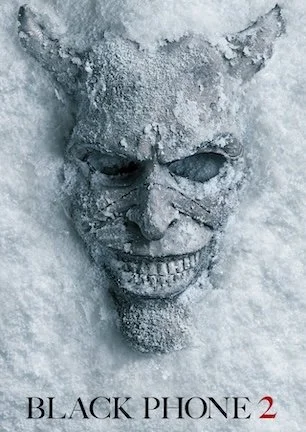Studio: IFC Midnight
Director: David Charbonier, Justin Powell
Writer: David Charbonier, Justin Powell
Producer: Ryan Scaringe, Meghan Weinstein, Carter Armstrong
Stars: Ezra Dewey, Tevy Poe, Donald Pitts, John Erickson, Rob Brownstein
Review Score:
Summary:
A mute boy uses a mysterious book to make a wish, but becomes trapped alone in his apartment with an evil entity.
Review:
Affinities for various types of horror films can run in waves. Maybe you were really into deadly doll movies at a particular point in time. Then you saw one too many of the higher numbered “Puppet Master” sequels and suddenly couldn’t stand such nuttiness anymore. Or maybe you were never a fan of killer kid flicks until you became a parent and could finally relate to those fears.
There have definitely been periods in my life, perhaps only a few years or just a few months ago, when “The Djinn” might have sung me to sleep with its textbook takes on creeping around by candlelight, flinching at suspicious shadows, tiptoeing past an attacker presumed to be unconscious, and other tension traps common enough to be considered “public domain suspense.” Lately though, with patience wearing as thin as my waning desire to invest in epic narratives with high tax runtimes, I’ve been responding more favorably to streamlined thrillers that forego ornate intricacies to concentrate on polished craftsmanship.
Which describes “The Djinn.” A screenwriting instructor would have no choice but to award the script, co-written by directing duo David Charbonier and Justin Powell, an A grade. The instructor wouldn’t be bowled over by brilliance. He or she might think the mini food fight between mute boy Dylan and his widowed father too cliché even for a stereotypically sweet “cute family” moment. He or she might also note that the thematic parallel accompanying a bedtime reading of Pinocchio is too on the wooden nose. Yet even if that instructor pish-poshed the storytelling tropes, there’s no denying the demonstration that Charbonier and Powell learned every essential lesson about foreshadowing, callbacks, establishing stakes, and efficient structure for easy-to-market genre entertainment. “The Djinn” can come off like it was manufactured by a machine, but it’s a well-oiled one for getting a solid job done.
Left alone in a new apartment after dad goes to work on a graveyard shift, Dylan finds an ominous grimoire left behind by the previous tenant. The spell book details a ritual that can supposedly grant the heart’s desire. Ignoring the warning about a deceptive djinn who could take his soul as a consequence, Dylan follows the instructions while wishing to have his voice back. With Pandora’s proverbial box opened, what follows is an agonizing evening of cat-and-mouse as Dylan becomes trapped alone with an evil entity.
“The Djinn’s” premise is so straightforward, stalling tactics come into play to extend the setup while initial eeriness simmers on a low boil. Dylan weirdly takes a late night shower so we can see the surgery scar that made him mute. A few flashbacks to a weeping mother hint at additional trauma tying knots on the boy’s anxiety. In between intermittent exposition, the camera closes in on TV static, clock pendulums swaying, and other images that suggest creepiness for no real reason other than they’ve been employed in umpteen movies that have trained us to see innocuous as insidious.
By design, “The Djinn’s” terror techniques are neither explosive nor expensive. Although the titular creature first manifests as a lanky otherworldly lurker, it then uses nearby pictures to assume human forms. A newspaper allows the djinn to take shape as a recently deceased killer. Photographs also let the djinn inherit the identities of the old man who owned the book as well as Dylan’s deceased mother. It’s easy for a cynic to feel cheated out of a proper monster and complain, “They only went with regular actors to save money!” Yeah, that’s probably true for the most part. But there’s a heck of a lot more inventiveness woven into how “The Djinn” curves corners than you’ll see in other pared-back haunters.
A top trick up Charbonier and Powell’s collectively creative sleeve comes from their heightened sense for being cinematic even when they’re simultaneously forced to be frugal. They certainly know how to make a 2-bedroom Burbank apartment appear five times larger than it could ever be in reality. Cinematographer Julian Estrada’s graceful camera rarely stops to rest on a tripod, creating a constant flowing sensation that distracts a mind from feeling confined to the single location. Indie horror filmmakers would do well to emulate how “The Djinn” makes a little look like a lot purely by being smart about blocking and staging limited action for maximum moodiness.
“The Djinn” plays a lot like a mainstream “child in supernatural danger” thriller a la “Lights Out” (review here) or “Come Play” (review here). Scares are standard, yet stylized. Plot progression is predictable, yet fully functional. Then “The Djinn” diverges from routine and one-ups its big studio brethren with an unexpected epilogue. I’m all for heart-rending horror that dares to eschew happy endings and “The Djinn” delivers a ripper that’s damn near diabolical in its implication.
“The Djinn” can be filed under ‘Familiar,’ but its economic use of dread and 80-minute duration add up to a coolly casual creeper. You don’t always need big, bold, and badass. As long as you have an appetite for quick, classic chills, “The Djinn” offers a modestly macabre meal you can gobble up while having dinner in the dark.
Review Score: 65






“Dust Bunny” tries its best to be gateway horror, but extended stretches of silence repeatedly followed by slow buildups really tax the tempo.